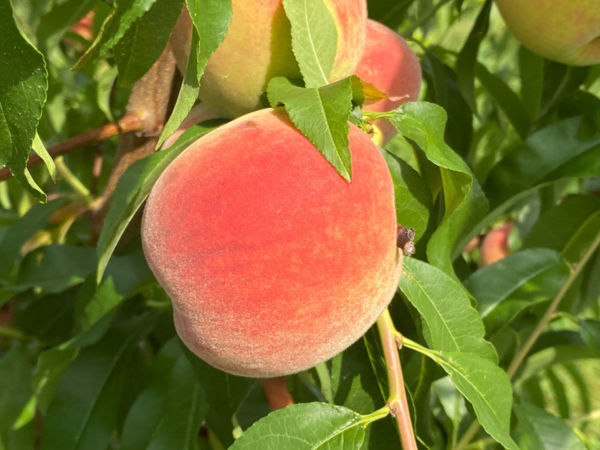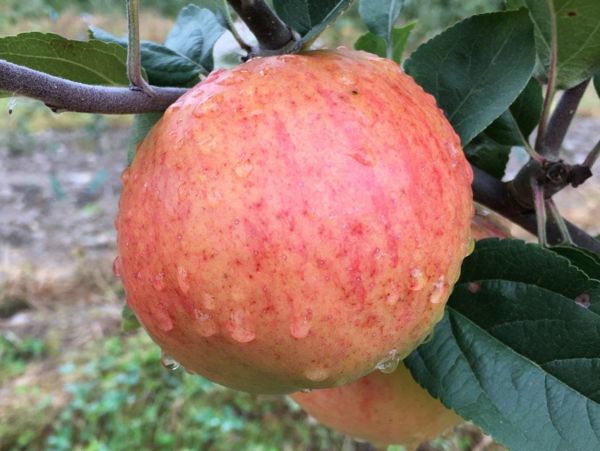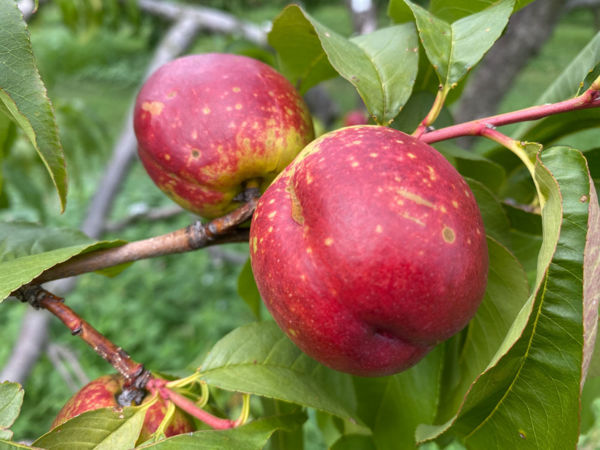An attractive, highly disease-resistant apple, ideal for organic growers.
Winter Banana Apple Scionwood (Spring 2024)
A unique low chill heirloom for warm-winter climates. Also known as Banana, Flory.
This tree is very vigorous and precocious with an upright but somewhat pendulous habit. Winter Banana has a reputation for being an excellent pollenizer, and it is partially self-fertile. Its stand-out quality is, however, an exceptionally low chill requirement (under 400 hours) coupled with heirloom-quality flavor. This tree is an excellent choice for warm-winter climates such as coastal California and the southern states. It is somewhat susceptible to all major apple diseases. Crops should be thinned for optimal quality and to maintain annual bearing
The late-season apple is large and round, with a beautiful pale yellow skin that is blushed a delicate pink and speckled with pale lenticels. It is sometimes seamed from the calyx to the stem cavity. The flesh is pale yellow, firm, and somewhat coarse, with a mild and aromatic flavor. The famous banana perfume will be noticeable only if the fruit is fully ripened. In 1925, Ulysses P. Hendrick described the unique aromatics as “a suggestion of musk exclusively the property of this apple.” While the flavor is too mild to appeal to most bakers, the apple will store well for about two months and it is well liked by cider makers. It should, however, be handled carefully, as the thin skin bruises easily.
This variety first appeared on the farm of David Flory in Indiana in the 1870s, and it was introduced to commercial markets in 1890. Its parentage is unknown.
Volume Pricing
| Quantity | Winter Banana Apple Scion |
|---|---|
| 1 | $12.00 |
| 2-5 | $7.00 |
| 6-10 | $6.00 |
| 11-99 | $5.00 |
| 100+ | $4.00 |
The Fruit
Fruit Type
Category: Apple
Subcategory:
Heirloom, Cold-Hardy, Hot-Climate
Fruit Uses & Storage
Uses: fresh eating, cider
Storage duration: one to three months (approximate, depending on storage conditions)
Fruit Appearance
Skin color: yellow
Flesh color: yellow
Fruit Origins
Parentage: unknown
Origin: Indiana
Introduced in: 1890
Introduced by: David Flory
The Environment
Calendar & Geography
USDA zones: 4 - 8
Chill hours: Not yet determined
Ripening date: Oct 20 (approximate, in New York State) + 35 days after McIntosh
Diseases & Pests
glossary
Apple Scab: Susceptible
Cedar-Apple Rust: Susceptible
Fireblight: Susceptible
Powdery Mildew: Susceptible
Pollination
Pollination Factors
glossary
Bloom group: 4
Is it self-fertile? Partial
Is it fertile? Y
Ploidy: Diploid
Pollination Partners
This table shows the first few results from a full search for pollenizers of Winter Banana Apple. Please see our Pollenizer Search to run other queries and read how the application uses various factors. Also read more about fruit tree pollination.
| Tree | Currently in Stock |
|---|---|
| Florina Apple | 0 |
| Porter's Perfection Apple | 0 |
| Spitzenburg Esopus Apple | 0 |
| Rubinette Apple | 0 |
| Virginia Crab Apple | 0 |
| Bramtot Apple | 0 |
| Binet Rouge Apple | 0 |
| Mother Apple | 0 |
| Melrose Apple | 0 |
| Muscadet De Dieppe Apple | 0 |
| Fenouillet Gris Apple | 0 |
See all pollination matches for Winter Banana Apple
Featured Products
A few things we're loving right now...
A full-flavored, freestone white peach.
A traditional semisharp cider apple from Spain.
A widely-grown, large, yellow-fleshed nectarine.

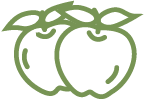

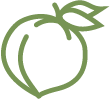
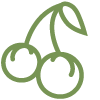
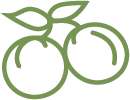
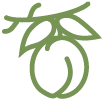
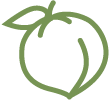
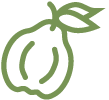


.png)
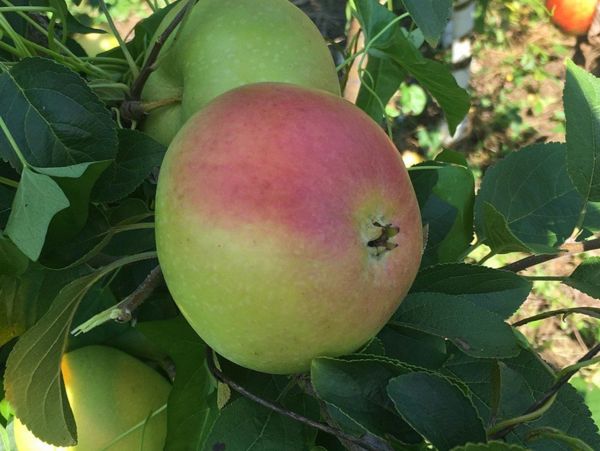

.png)

